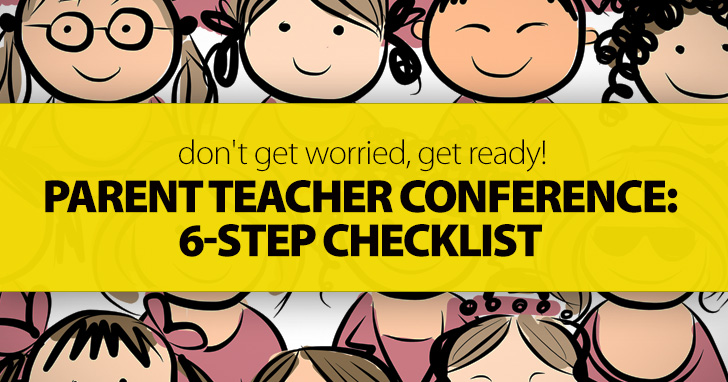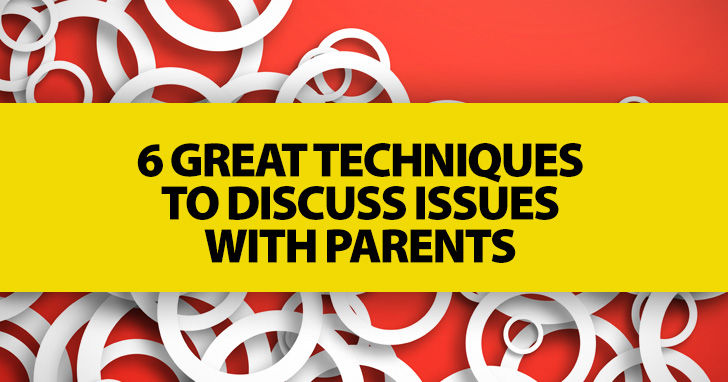Parent Teacher Conference: Don't Get Worried, Get Ready (6-Step Checklist)


There are many things that can cause unruly behavior in children and most of the time, these causes are not originated in the classroom. How we react as teachers, is very important. My first recommendation is, don't get angry, get help. Easier said than done, right? Although this is sometimes hard to achieve, it is the only way to solve these issues constructively. When there are issues with behavior, they are usually present in most aspects of a child's life and not exclusively in your classroom. That's why, finding a solution is not only your responsibility. Both teachers and parents share the goal of helping children learn what behavior is acceptable. Also, research has proven that when parents and teachers work together, everyone benefits: students tend to perform better, have better behavior, and show more positive attitudes toward others. Involving parents is definitely more effective than dealing with the issues yourself. However, collaboration between parents and teachers is not always a smooth process. Parents are often sensitive, emotional or defensive regarding issues like these and frequently react to what teachers tell them about their child. The good news is that learning valuable techniques on how to talk to parents when there are issues, is not difficult. Take a look at these.

It is always better to try to schedule talks about discipline in person. Asking the parents to come, and inviting them into the classroom is a great way to show them that their child is important to you. Also, you will have material available in case there is anything you need to show them. Before the conference takes place you might want to have a quick chat with the parent on the phone. Ask them to talk to their child in order to ask them to explain why they think their teacher would request a meeting to discuss discipline. This gives the child an opportunity to voice their version of events, which helps parents and later you, get the child's perspective and attitude towards the issue. By doing this you are also showing parents that you are interested in their child's opinions and views on the matter.
Once parents arrive to the meeting, first thank them for coming and ask them to make themselves comfortable. Begin the conference by telling parents as many positive comments as possible about their child. Remember, anything that comes to mind will do. Nice comments about their work or how they do things is perfect. Providing positive comments about their child will demonstrate you are capable of seeing the good and the bad and that you appreciate the good things as well.
At this point you need to provide all the information parents will need in order to fully understand what is happening and to ultimately help you find a solution. Explain what the problem is and when it started . Also, if there is something that you notice triggers the problem. Provide samples of the child's work, and anything that can give them a clear image of the situation. Choose your words carefully and be professional. You should avoid any type of emotion and always be calm.
You need to ask parents to provide information regarding the nature of the problem as well. Ask general questions that are not personal and explain that you are asking these questions simply to better understand what is happening. For instance, ask them if there is any situation at home that could explain the child’s change in behavior. If parents are reluctant to speak, tell them that you understand and that they should simply keep in mind that situations at home can affect the way kids behave.
Just sitting and doing some talking is not enough. After doing all that analyzing, it's time to do something about the problem. Nothing shows parents that you are committed to your students more than putting together an action plan to improve the situation. An achievable action plan ensures that you and the parent both work on helping the child adjust his/her behavior. Additionally, the plan should involve a method that helps monitor the child’s progress. Also, before ending the parent-teacher conference, discuss ways to keep in touch or schedule another meeting to facilitate follow up.
Now that you and the parent have a plan, you can determine rewards and consequences. It's time to determine what will happen if the child responds favorably to that plan or not. The rewards and consequences need to be decided together, both parent and teacher need to be on the same page. This is essential since these rewards and consequences can be given / take place in the classroom and/or at home. It's important you explain to parents they need to follow through
As teachers we need to understand that behavior can be taught. If we team up with parents, it is much easier to achieve. Remember to stay positive when talking to parents and to avoid getting emotional. Do everything possible to show them that you and they are on the same side and to keep the goal in mind, their child's well-being.